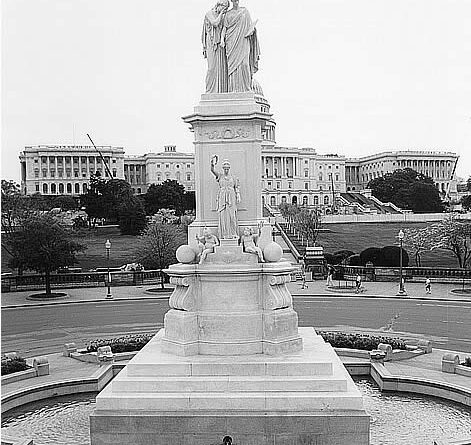Unprecedented Nine-Day Peace Streak in Washington D.C. Following Federal Intervention
In a unique turn of events, Washington, D.C. has recently experienced an astounding nine-day streak of peace, a period devoid of any murders. It’s an unusual occurrence in an area often in the headlines due to high crime rates. While there’s been hesitation in attributing this positive change to any one factor, the timeline clearly marries this sudden plunge in violent crimes with the implementation of a staunch federal policy targeting crime, put forth by former President Donald Trump.
Earlier this month, a ‘state of crime emergency’ was declared in Washington, D.C. by President Trump. He pushed for the use of federal powers to bring about changes, including the mobilization of the National Guard to supplement local law enforcement efforts. The district, for years haunted by crime, had been grappling with various challenges, including understaffed security agencies, systemic negligence and tangled red-tape.
Predictably, this robust action attracted considerable criticism from liberal politicians and traditional media houses. They voiced their concerns about potential ‘federal overreach,’ while others alleged the move to be a veiled aggression against racial minorities. Nevertheless, the common inhabitants of D.C., many forced to confine themselves to their homes due to fear, breathed a sigh of relief with the now discernible presence of law enforcement.
Ever since this federal intervention, there’s been a notable upsurge in arrests. Hundreds of delinquents, including recidivists and undocumented individuals carrying records of multiple misconducts, have been effectively eliminated from the city’s streets. The city has seen an impressive drop in violent crime rates: reports of car theft, burglaries, and assault cases have noticeably declined.
In the span of just over a week, a city once lamentably familiar with daily bouts of criminality has reported no instances of murder. This is no random incidence but a result of firm leadership that chooses to emphasize the law’s enforcement over providing excuses for crime. The past few years’ lax policies and ‘soft-on-crime’ attorneys have inadvertently led to an empowerment of local gangs and career criminals, often at the expense of ordinary citizens.
Former President Trump also hinted at expanding his federal intervention strategy to other cities struggling with high crime rates. Specifically, he mentioned Chicago as a potential target for an intervention mirroring that executed in D.C., saying, ‘I think Chicago will be our next,’. He further implied that there could be similar assistance for New York in the future.
This announcement represented a step up in his crime-fighting strategy, aimed at tackling prevalent issues such as crime, homelessness, and illegal immigration in cities predominantly run by Democrats. The anticipated impact of this enhanced approach, however, sparked swift opposition from several major figures in Illinois’ political landscape.
Just as the plan of federal intervention in Chicago was announced, local officials responded with harsh criticism. Governor JB Pritzker, Mayor Brandon Johnson, and Senator Tammy Duckworth were amongst those who expressed concerns about the strategy. Their objections were premised on the idea that the plan was politically motivated, potentially unlawful, and fundamentally unnecessary.
These detractors pointed out the fact that Chicago had already witnessed a considerable dip in violent criminal activities without the need for federal intervention. They perceived the proposed plan as a needless declaration given the existing positive trend, undermining the efforts already put forth by the local law enforcement.
The contention wasn’t confined to Illinois’ officials alone. Similar concerns were brought up by House Minority Leader Hakeem Jeffries, who stressed that without a formal request from the state, the President lacked the authority to deploy federal forces in Chicago.
In summary, while some celebrated the nine-day murder-free period in D.C. as a victory against crime, critics continue to argue over President Trump’s approach and intentions. The anticipation and controversy around potential future interventions in cities like Chicago and New York raise questions on the effectiveness and justification of such federal measures.
It is clear that the road ahead will be fraught with debate, given the stark discrepancy in views. What remains clear, however, is the significance of this bold move in transforming the crime narrative in Washington, D.C. Although the method has sparked controversy, the outcome of the intervention underscores that sometimes, stern measures might be what it takes to reinstate peace.
Moving forward, it will be essential to evaluate the long-term effects of such interventions and assess its potential to be implemented in other cities struggling with crime. For now, the drastic decrease in crime rates in D.C. serves as a case worthy of careful study, and a potential blueprint for future interventions.

